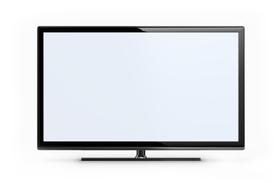As a nation, we spend billions on K-12 educational technology So, the question about whether all this spending is improving outcomes is a fair one. Has technology, in fact, improved educational outcomes?
Pros
Technology has freed up administrative time.
Electronic grade books save time for teachers. Computerized tests and quizzes save more time. The software which allows students to master skills in maths, sciences, and languages are huge time savers. Email and blogs make communications with parents and administration instantaneous and very efficient. And the tools just keep getting better and better. The less time a teacher has to spend on administrative tasks, the more time she theoretically can spend on lesson preparation and other purely teaching-related tasks.
Technology has opened new worlds.
iPads and wireless networks have liberated teaching. We can teach anywhere, at any time. That flexibility is what makes teaching exciting and relevant. Decades ago, you livened up your class by taking them outside on a beautiful day to sit under a tree and teach your lesson. The lesson was usually successful because you had your students' undivided attention. You piqued their interest with the change of venue. Exposing young people to the world around them locally, nationally, and abroad is an essential part of a teacher's job.
Technology performs that function instantly and without creating logistics issues like taking a class outdoors does. Your history lessons come alive as you make virtual visits to places that were probably just names up until then. The pictures and photographs, videos and soundtracks flatten the world, as Thomas Friedman put it so aptly in his book The World is Flat. Educational technology has been beneficial in promoting international understanding. Jeans, T-shirts, iPhones, iPads, Twitter, and Facebook are the currency of young people everywhere, not just in the United States.
Technology enhances teaching.
I remember how excited I was using the fledgling Internet with 1200 bps dial-up modems in my classroom in 1996. I was teaching Latin to 6th, 7th, and 8th graders. The resources I found way back then enriched my lessons and brought my beloved dead language back to life in ways I never dreamed. Couple that enrichment tool with my subject expertise and enthusiasm for the subject, and we had a popular class on our hands. I remember parents asking me why their children enjoyed Latin so much. Isn't that what any teacher wants to hear?
Technology can truly enhance teaching. But, like any other tool or resource, it needs to be used effectively and appropriately. I remember my high school teachers back in the 50s and 60s, transfixing my classmates and me with amazing diagrams and arguments written in chalk by hand on a blackboard (yes, there were blackboards back then). I consider technology as the 21st century equivalent of chalk and a blackboard. It is a tool. A cool, powerful tool. But just another tool in any teacher's bag of tricks. An experienced, creative teacher knows how and when to use all the tools in his kit bag.
Cons
Technology has created research challenges and new opportunities for academic dishonesty and plagiarism.
Before we had the Internet, using somebody else's ideas and words required serious effort. You had to find a passage that you wanted to appropriate for your paper. Then you had to copy it. Time-consuming. Tedious. Search engines such as Google and Bing allow us to search for anything. Once you find what you are looking for, it is dead easy to copy and paste it into your paper and call it your own. Of course, both forms of plagiarism assume that you will not be caught. What you found on the Internet can be easily found again by programs such as TurnItIn. Students are always looking for shortcuts. Teaching them the right way of doing things has been part of a teacher's job forever. Technology merely poses additional challenges.
Technology has made cheating harder to detect.
Wireless devices such as smartphones with their powerful built-in cameras and instant messaging challenge teachers and examination proctors constantly. The episode of cheating on SAT exams exposed in Great Neck in December of 2011 proves that even a highly-security conscious organization like the College Board is not immune to cheating. So you can only imagine what a classroom teacher is up against, should her students decide to engage in some deliberate electronic cheating. While cheating is much tougher to detect, it provides yet another opportunity to teach a valuable life lesson: cheating is immoral and illegal.
Technology makes people think they are experts.
Search engines create a false sense of authority. Enter a search string such as "cure for acne," and you will get 23 million search results in half a second. Before the Internet, you would have had to search a Dewey Decimal card catalog or consult an encyclopedia - remember encyclopedias? That forced you to be critical and make judgments about the materials you chose to read and research. Eventually, you found an answer which was authoritative and accurate. Today teachers have to teach their students how to distinguish between spurious and commercial sources when they review search results. Still, because the results are so easy to obtain, the temptation to be an expert in just about any subject based on what you find on Google is tempting.
The same holds for blogs, tweets, Facebook posts, and all the other material which you find online. The good teacher must teach his students how to be analytic and critical of everything they read, see, and hear.
To answer the question, which is the subject of this article, I would have to say that technology has given teachers another tool that can enhance educational outcomes if used skillfully and effectively. Would $30 billion in educational technology spending be better used to provide students a free college education or to provide other urgent needs? We'll look at that question in a future article.
Questions? Contact us on Facebook. @privateschoolreview






















